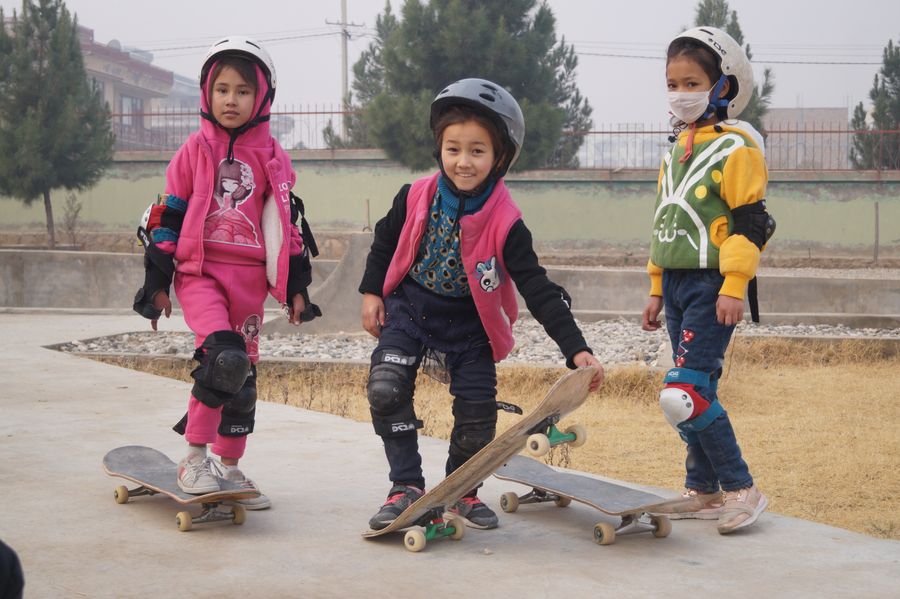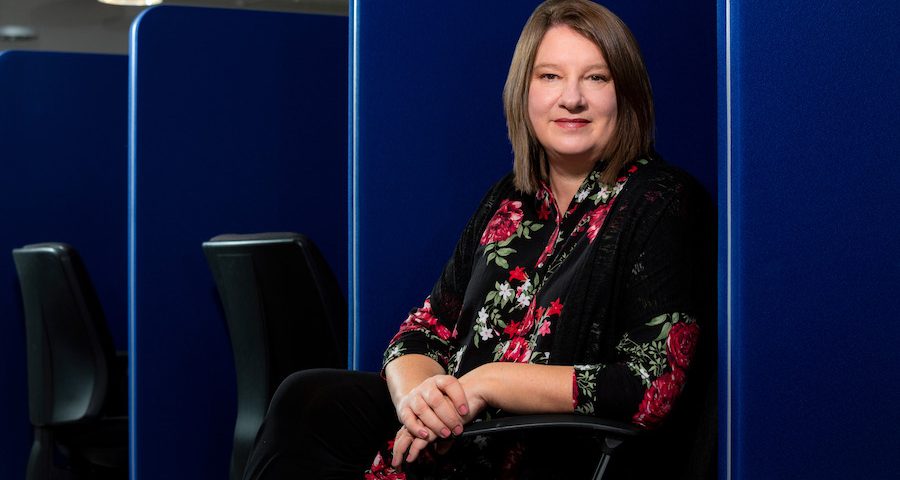
Rebecca Allaigre: For transformational change, move from budget-based to mission-based fundraising
February 9, 2022
Oliver Percovich: Leading for change with a ‘girls-first’ policy
February 9, 2022The UK’s Chartered Institute of Fundraising is one of the longest-standing fundraising associations in Europe. With 5,000 members and a vast network of hugely valued volunteer-led groups, 2022 may well be a major turning point for the organisation, with a new CEO in post and a focus on meeting members’ needs in this much-changed fundraising environment.
We speak with CEO Katie Docherty, who joined the organisation late last year about her passion for fundraising, new challenges for the sector and how the Institute is looking to grow its learning and networking offering.
What was it that first drew you into the fundraising sector?
Although I started out in politics, moving into fundraising was a very deliberate career choice for me; one that I made about 21 years ago. I had already done quite a bit of volunteering and I knew I wanted to work for an organisation that does good things, so that naturally drew me in to the charity sector. I found my first fundraising job with Anthony Nolan Bone Marrow Trust and it was there that I developed a real love for the profession.
One of my most important and memorable experiences was taking a group of supporters to climb the Inca Trail. I had to raise money myself and it really was the most incredible experience. I’d never done anything like that before and I’m terrified of heights, so walking along a path only one metre wide and 16,000 feet up in the air was a huge challenge, physically and mentally. But I wanted to understand what donors were experiencing when they do this sort of challenge or run a marathon for us. I wanted to be able to walk the talk. I stayed with the organisation for 10 years, going on to manage fundraising teams across the country, before working with Age Scotland and then taking up the post of CEO at Scouts Scotland for the next five years.
Joining the Institute last year has been a wonderful opportunity to come back to the fundraising world. I hadn’t realised how much I had missed fundraising until I got here. It’s a great time to bring change to the organisation and make sure it’s bold enough to deliver what fundraisers need and want in the UK, particularly bearing in mind how much the pandemic has changed things for us all.
When you talk about the changes, what do you think are the main challenges facing fundraisers now?
The pandemic has rapidly accelerated the pace of change in fundraising, particularly the proliferation of online and digital channels. I honestly think that some of the things happening now, might not have happened for another 10 years. This has created huge opportunities, but immense challenges too. The loss of in person events has hit the sector hard and every charity has had to adapt or find some new way of doing things. The grants market has become even more important, but that has made competition particularly tough. And of course there are completely new types of fundraising emerging too. The challenge is to learn to be agile and to be willing to accept that some of the things that fundraisers have relied on the past might not be working any more.
How do you think the pandemic has influenced the way that charities are engaging with their supporters?
I think it has reinforced the importance of two-way conversation and open, honest dialogue. Rather than telling the public what we’re doing and what support we need, more organisations are opening up about the challenges they face. As a sector, we’re getting better at communicating with people on an individual level and showing a little more of our personality along the way. We’ve seen a resurgence of the telephone for fundraising as well as newer channels like Zoom or video calls, and of course social media and messaging has boomed too. It’s those channels that enable charities to stay in touch with supporters and respond to their needs that have really helped the sector to build relationships over the past two years.
What does all this mean for the Chartered Institute?
For us too, we have to be agile and responsive, and be ready to do things differently. As a professional membership organisation, we need to be really in touch with what our members want, and make sure that we’re delivering that, and offering more learning and development opportunities. We’ve really missed live events due to social distancing restrictions, so we’re continually looking at how we can evolve and develop our events programme so that members can keep up-to-date, network with others, hear new ideas and talk about different experiences. I think that networking is more important now than it’s ever been. No one can stick with the same plan that they had before the pandemic and we need to learn from one another how best to evolve and grow.
And what are your priorities now?
At a practical level, we need to ensure that we’re providing members with the tools, learning and networking opportunities that they need to enable them to grow and be successful in their role. But we also have a key role to play in amplifying the voice of fundraisers to policymakers and promoting the profession itself. We’re working hard to ensure that – both as an employer and a profession – we can become a leader in equality and diversity.
These are big goals and collaborating with others both locally and cross borders through networks like EFA will be so important in helping us learn, develop and adapt. I’m always conscious that I bring a Scottish perspective to things and that this often differs to that of people in other parts of the UK. The only way to truly expose ourselves to new ideas, learning and best practice is to hear from others. In many ways, the pandemic has made us appreciate that even more and nurture our role within the fundraising community.
About Katie Docherty
Katie joined the Chartered Institute having spent five years as Chief Executive of Scouts Scotland. She brings her valuable insight and knowledge to lead the fundraising community as a former fundraiser for Anthony Nolan, senior manager for Age Scotland, and as a Director of the Association of Chief Officers of Scottish Voluntary Organisations (ACOSVO).
Katie began her third sector career at Anthony Nolan leading the regional fundraising team across the UK and then moved to Age Scotland as Head of Charity Services. Katie joined Scouts Scotland in 2016, a membership organisation of 40,000 young people and 12,000 adult members.
She has recently been appointed by the Scottish Government as a Board Member at Children’s Hearings Scotland (CHS). In her spare time, she is an Assistant Beaver Scout Leader, football season ticket holder and a Fellow of the Royal Society for Arts.




